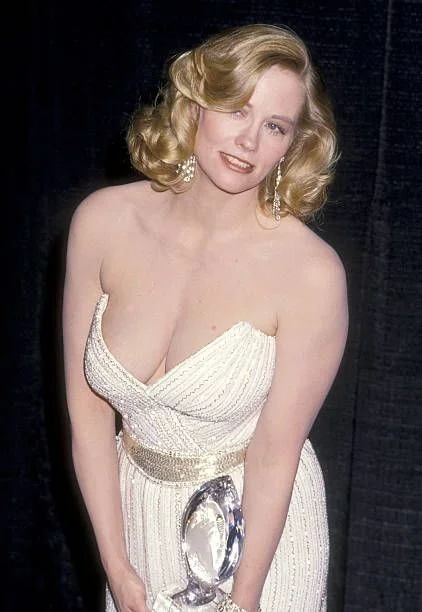














In the digital age, interactions have transformed dramatically. Social media platforms connect us like never before, but they also bring unique challenges. One of those challenges is the act of blocking someone. It’s a term we hear often, yet its true meaning can vary widely based on context and emotion.
Blocking someone isn’t just about cutting off communication; it goes deeper than that. It’s a personal decision that reflects boundaries, emotional well-being, and sometimes even self-preservation. Understanding what it means to block someone—and why people do it—can shed light on our online relationships and how we navigate them.
So let’s dive into this complex topic together! Whether you’re considering blocking someone or you’ve been blocked yourself, there’s so much more to explore beyond the click of a button.
Understanding the concept of blocking someone
Blocking someone means severing online communication, often on social media platforms. It’s a tool that allows users to control their digital interactions effectively.
When you block someone, they can no longer view your profile or send messages. This action creates a barrier that protects your space and privacy. It’s more than just hitting a button; it signifies a decision to prioritize mental well-being over unwanted contact.
The concept varies from person to person. For some, it’s an act of self-care during difficult times. For others, it might reflect frustration with negativity or harassment.
Blocking serves as a powerful reminder of the boundaries we set in our digital lives. Understanding this helps us navigate our relationships more thoughtfully and responsibly.
Reasons why people block others
People block others for a variety of reasons, often rooted in emotional safety. One common motive is to eliminate negativity. If someone consistently shares toxic comments or engages in harassment, blocking can be a shield.
Privacy concerns also play a significant role. Individuals may want to restrict access to their personal life from acquaintances or strangers who have crossed boundaries.
Sometimes, the decision stems from past relationships. Lingering feelings can make it hard to move on when an ex remains visible online. Blocking offers some distance and space for healing.
On the flip side, some might simply feel overwhelmed by social media interactions. A quick block can create immediate relief from unwanted notifications or messages without needing a lengthy explanation.
Blocking serves as a tool for self-preservation in our digital age, allowing people to curate their online experiences according to their comfort levels.
The impact of being blocked on social media
Being blocked on social media can evoke a range of emotions. It often leads to feelings of confusion and hurt. You might question your worth or wonder what went wrong.
This action can create a sense of isolation. Suddenly, you find yourself cut off from someone who was once part of your digital world. The absence can feel heavy, especially if you shared personal moments or inside jokes.
Social dynamics shift when blocking occurs. It sends a clear message about boundaries and limits. For some, it’s liberating; for others, it stings deeply.
Moreover, the fear of public perception looms large. Friends may notice this rift and speculate about its cause—adding another layer to the emotional impact.
The experience serves as a reminder that our online interactions carry weight. Each block signifies more than just an act; it reflects underlying relationships and personal choices within the digital landscape.
How to deal with being blocked
Experiencing being blocked can sting. It’s a jolt to the ego and emotions alike. First, allow yourself to feel whatever comes up—sadness, anger, or confusion.
Next, try not to take it personally. The reasons behind someone blocking you might have little to do with you as an individual. Understanding this can help ease some of the hurt.
Consider reaching out through other means if appropriate and safe. A simple message or email may clear the air, but respect their decision if they choose not to respond.
Redirect your focus toward self-care activities that bring joy and peace. Whether it’s spending time with loved ones or indulging in a hobby, shifting your attention is crucial.
Remember that online interactions reflect only part of reality. Embrace real-life connections where communication thrives without barriers.
Alternatives to blocking
Blocking might seem like the easiest solution, but it’s not your only option. Consider muting or unfollowing instead. This lets you keep someone at arm’s length without severing ties completely.
Another approach is to adjust your privacy settings. Limit what certain users can see without cutting them off. This way, you maintain control over your social media experience.
Engaging in direct communication can also be effective. A simple conversation about boundaries may clear up misunderstandings and reduce tension.
Take a break from social media altogether if needed. Sometimes stepping away allows for perspective and clarity on how to handle relationships online better than any block ever could.
The importance of communication and setting boundaries
Effective communication is vital in any relationship. It fosters understanding and helps clarify intentions. When we communicate openly, we create a safe space for expressing feelings.
Setting boundaries is equally crucial. Boundaries define what behaviors are acceptable and what aren’t. They protect our emotional well-being and promote mutual respect.
When boundaries are unclear, misunderstandings often arise. This can lead to frustration or even conflict. By clearly articulating our limits, we minimize the chances of being hurt or feeling overwhelmed.
Regular check-ins with others can also help maintain healthy relationships. Sharing how you feel about interactions strengthens connections and promotes empathy.
Both communication and boundary-setting pave the way for healthier dynamics. They enable us to navigate complex emotions without resorting to extreme measures like blocking someone.
Conclusion
Blocking someone refers to the act of preventing an individual from accessing your social media profiles or contacting you online. This action serves as a boundary, protecting yourself from unwanted interactions. Understanding when and why this step is necessary can lead to healthier online relationships.
People might block others for various reasons. It often stems from negative experiences such as harassment, bullying, or simply feeling overwhelmed by someone’s constant presence. Sometimes it’s just about taking control of one’s digital space and prioritizing mental well-being.
The impact of being blocked can be significant for many individuals. It may evoke feelings of rejection or confusion, especially if there was no prior indication that things were going sour in the relationship. Social media dynamics can complicate emotions further; after all, these platforms are designed for connection but can also foster disconnection.
Dealing with being blocked requires introspection and maturity. Instead of immediate anger or sadness, consider what led to this action. Reflecting on past interactions might reveal patterns that need addressing in future relationships.
If blocking seems too extreme but maintaining distance is necessary, explore alternatives like muting notifications or setting privacy limits on posts. These options allow you to create boundaries without completely severing ties.
Communication remains vital in any relationship—digital or otherwise—and establishing clear boundaries helps prevent misunderstandings before they escalate into actions like blocking someone entirely.
Understanding the nuances around blocking someone meaning provides insight into our digital behaviors today and the complexities surrounding personal connections online.